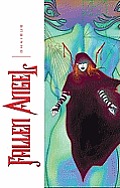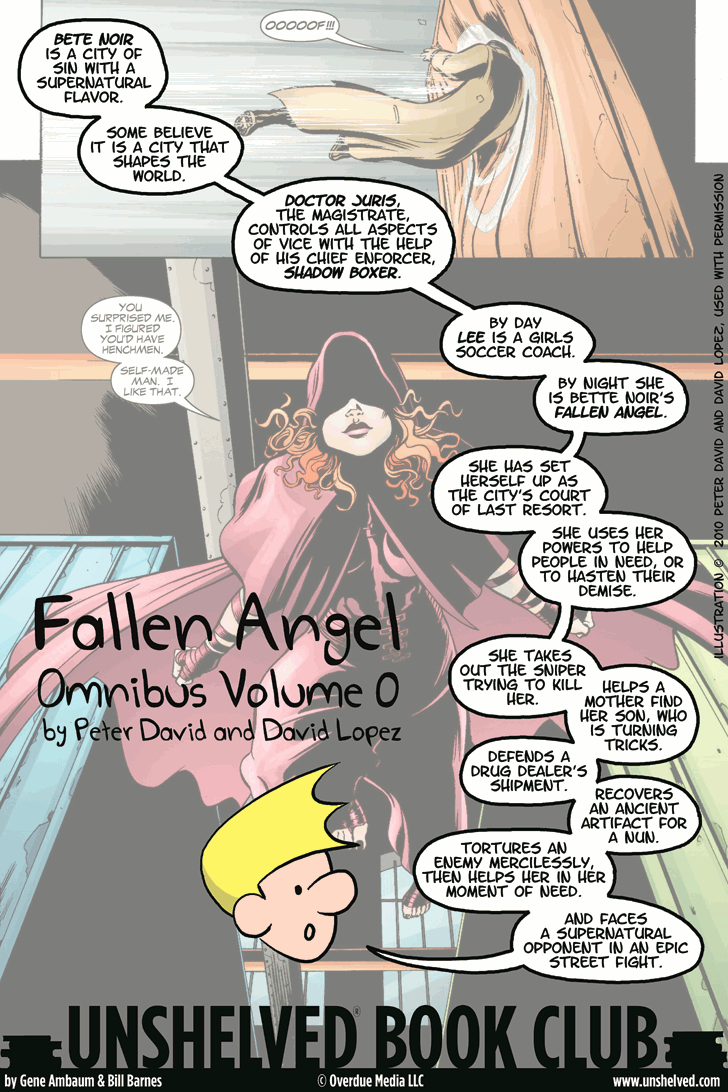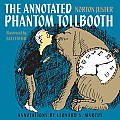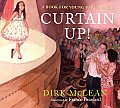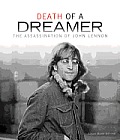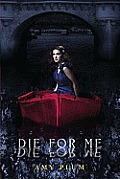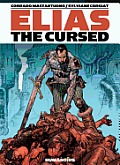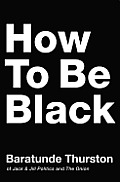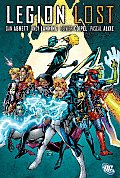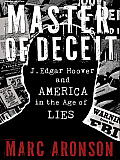Link to this review in the form of a comic strip by geneambaum tagged paranormal • superhero
Link to this review by sharonlevin tagged nonfiction • fantasy • humor
Milo sees no point in anything. He doesn’t understand why he has to learn math or geography or spelling. The world is a completely uninteresting place. He comes home from school and sees all the toys and books that he hasn’t bothered reading or playing with. He also sees a large package. Inside is The Phantom Tollbooth, a gateway to a magical, confusing (and educational) land (though Milo doesn’t see it that way).
Milo enters into Expectations, where he may or may not go beyond Expectations on his way to Dictionopolis. Given his natural tendencies, he ends up in the Doldrums where he encounters Tock, the Watchdog. He also meets the Spelling Bee (a bee who spells many of his words) and the Humbug, who joins him on his journey to rescue Rhyme and Reason (two princesses) from the Castle in the Air.
Why I picked it up: I bought the original many, many moons ago because I loved the cover and it was available, cheap, through the Scholastic Book Club. I picked up this copy because it offered extras I’d never seen before: biographies of Juster and Feiffer, notes on every play on words, and historical reference. For example, in the entry on Officer Shrift (the shortest policeman), I learned “short shrift” was a term Shakespeare created. “Shrift” means a penance imposed by a priest, so a short shrift was given to those who were on their way to be executed, since they didn’t have a surplus of time.
Why I finished it: Because I learned more and more about one of my favorite books with every page turn. It was fascinating to discover that the small seed that started this book was a conversation Juster had in a restaurant with a small boy who asked him, “What is the biggest number there is?”
I’d give it to: My friend Mike, who understands that I can never, ever say “I’m killing time” because I know that would make Tock sad.
Link to this review by snow tagged nonfiction
When Amaya lands the lead role in a musical she learns all about the hard work and time that go into putting on a play. From auditions to rehearsals, set building to costume making, and opening night to the final bows, Amaya and her friends experience what life in the theatre is really like.
Why I picked it up: Before I became a librarian I was planning on being a stage manager. I wanted to see how McLean would simplify the elements of theatre work to make them easier for elementary school kids to understand.
Why I finished it: Brassard’s illustrations were a delight. Her children look real — some have snaggled teeth and others stand awkwardly when they first learn their parts. Amaya is mixed-race and the other children are a believable mix of races as would be found in most schools and towns.
I’d give it to: Sarah, who is almost positive that she wants to be a ballerina, because I want her to see that there are many roles she can play, both onstage and backstage. The two glossaries –- one about people in the theatre and the other about theatre terms –- will help her understand how many people it takes to put on a play.
Link to this review by flemtastic tagged history
This breezy retrospective of the Beatles’ rise to popularity focuses on John Lennon and his assassin, Mark Chapman. With background information for younger fans familiar with their music but not their story, this well-researched and documented book makes it easy to understand how the band and John Lennon fit into the 1960s and 1970s. Chapman’s rationale for shooting Lennon is examined in detail, as are Chapman’s life and fascination with The Catcher in the Rye. Footnotes and citations in the back make this book suitable for research.
Why I picked it up: I know the Beatles’ songs, but other than vague clichés I have absorbed (someone is the Walrus, Yoko broke up the band, Paul is the real talent, etc.) I didn’t know much of their story.
Why I finished it: The book had background information about the Beatles (like their earlier names, among them The Quarrymen and Silver Beetles), but it also covered details like John taking a five year break to be a house-husband and take care of his baby son, Sean. I didn’t know that John and Yoko faced a long court battle against deportation from the U.S. after they were been termed “undesirable and dangerous aliens” by the FBI.
I’d give it to: My sons, who would love to argue about whether Chapman was insane or not. (The court considered Chapman delusional yet competent, even though Chapman claimed he saw little people all over the walls and hallways of his house and imagined killing them by pushing buttons attached to his sofa.) Trivia buff Neil, who would want to know little nuggets like the fact that Lennon signed a copy of the Grammy-winning album Double Fantasy for Chapman two hours before Chapman finally did shoot him, almost changing Chapman’s plans to harm him.
Link to this review by danritchie tagged paranormal • romance • coming of age
Katya and her sister, Georgia, have lived in Paris at their grandparents’ home since their parents were killed. They handle their grief very differently — Georgia spends her time socializing while Kate prefers the solitude of books and small cafés. One day a handsome young man catches Kate’s eye, and they meet a few days later when he rescues her forgotten book bag. But as she and Vincent grow closer, something is not right. Kate follows him when he is suddenly called away one day, and sees Vincent’s friend get killed after saving another man. As Vincent comforts her, he shows no grief or concern. She decides to avoid him.
Weeks later, while doing research for school, she finds an obituary for Vincent from 1968. She demands an explanation, and is told that Vincent and a few others are revenants, immortals who live forever to save others. But they also have deadly enemies.
Why I picked it up: I heard an interview with the author talking about her desire to find a different take on the zombie/supernatural genre, and why she choose Paris for the setting. She wanted her undead to be a positive force, not monsters that “just eat people’s faces.”
Why I finished it: The conundrum of Kate and Vincent’s relationship created by his immortality. If Vincent doesn’t die saving someone, he ages normally. But if he gives his life for another’s, he returns to the age he died originally.
I’d give it to: My friend Gail, who will love visualizing the cafés, the walks along the Seine, and the city’s dark side.
Link to this review by geneambaum tagged fantasy • graphic novel
Elias the Conqueror was a merciless ruler who hunted down and killed sorcerers, using talismans of The Game of Celestial Beings and the powers they granted. But he was defeated by the sorcerer Melchoir who stole his face.
Now Elias seeks out the rest of the talismans and hunts Melchoir as a plague ravages the land.
Why I picked it up: I had just read the latest Orbit graphic novel and wanted more European science fiction. I asked the woman at the Comic Stop if she knew of anything. After a decent readers advisory session, she recommended this.
Why I finished it: Several unusual colors stand out from the earth tones of most of the book, making objects and people pop out from the background, and the use of light and shadow is masterful. It seemed incredibly serious and bloody, too, but when the comical-looking gorilla horse arrived, I knew there were going to be some lighter moments.
I’d give it to: Jeff, who would love the nearly wordless battle at the beginning of the book, where Elias fights raiders who attack the caravan he’s defending.
Link to this review by billba tagged humor • biography
Humorous writing on the topic of race, combined with a fascinating personal history, by the impressively named Baratunde Rafiq Thurston, standup comedian and Director of Digital for The Onion.
Why I picked it up: As the white father of a black daughter, I will never be able to learn enough about race in America. But where a lot of weighty books on this topic go unread on my bookshelf, this one promised to be both an entertaining and fast read. Basically it had me at The Onion.
Why I finished it: In order to speak authoritatively, Thurston assembled the Black Panel (made up of notable black Americans and one white Canadian for diversity) and periodically asks them questions like, “How black are you?” The variety of responses is always illuminating. These contrast nicely with the many laugh-out-loud moments elsewhere in the book, e.g. “My family has been black for a long, long time.” I truly admire someone who can write humorously about a serious subject.
I’d give it to: Cheryl, who like Thurston was a black student in a mostly white school. I wonder if she went through a revolutionary phase, too, and wrote an eighth-grade paper like Thurston’s “The Destruction of Afrikans: The U.S. Propaganda Machine.” (It’s reprinted in this book in its entirety.)
Link to this review by geneambaum tagged science fiction • superhero
A Legion of the Superheroes outpost was thrown through a rift in space-time to a place outside our universe. Far from home, Legionnaires Chameleon, Kid Quantum, Umbra, Live Wire, Ultra Boy, Monstress, Saturn Girl, Apparition and Brainiac 5.1 search for the missing Element Lad, ERG-1, and a way home. Unfortunately, the Progeny is out to exterminate all other races (including the Legion members).
Contains Legion Lost #1-12 © 2000, 2001
Why I picked it up: I read through Mark Waid’s fantastic Legion of the Superheroes run and wanted more.
Why I finished it: In the opening chapter, Shikari, on the run from the Progeny, finds the Legion Outpost. After stepping inside she triggers the Legionnaires release from the crystals that protect them. They seem larger than life and their powers frightening as they step in to save her. (And she soon uses her abilities to help them as well.) It was a vision of the Legion that I hadn’t seen before (and reminiscent of the view of superpowered folks from the perspective of ordinary people in the fabulous Marvels).
I’d give it to: David, who used to read comics with me in high school. There’s a lot to love here, but I think he’d identify with Saturn Girl and Braniac 5.1’s desire to give everyone hope (and the way their well-intentioned plans implode later in the book).
Link to this review by flemtastic tagged biography • history • nonfiction
When J. Edgar Hoover became Director of the Federal Bureau of Investigation at only twenty-nine, the FBI was a backwater agency with little respect among lawmen. Through a mixture of public relations magic, discipline, and criminal investigations that often trampled on Americans’ civil rights, he created an agency that stands at the top of American law enforcement today. Aronson covers Hoover’s thirty-seven year directorship/dictatorship including bringing down gangsters, fighting the red menace, creating a top-notch forensics lab, and his personal life.
Why I picked it up: There is a bevy of Hoover information in the media because of the Leonardo DiCaprio movie J. Edgar.
Why I finished it: Aronson shows how Hoover took advantage of public events. When the President became frustrated with the popularity of criminals like Baby Face Nelson and John Dillinger, Hoover was able to circumvent laws against wiretapping. Hoover brazenly broke laws and justified it through semantics. Specifically forbidden by law to keep files about the personal lives of unindicted citizens, he amassed dossiers on non-criminals and did not call them files, thus fulfilling, in his own mind, the mental gymnastics necessary to legitimize the practice. A shocking example of Hoover’s illegal actions is that he once sent a note to Martin Luther King, Jr. attempting to blackmail him into suicide by threatening to expose the seamier side of his personal life. (A copy of the note is included in the book.)
I’d give it to: Chris, who would enjoy the details about the pettiness of a man who was at the top of his profession. For example, Hoover forced out an agent named Melvin Purvis, who had gotten attention for apprehending gangsters, because it was more attention than Hoover wanted him to have. (Blackballed by Hoover, Purvis eventually committed suicide.)
